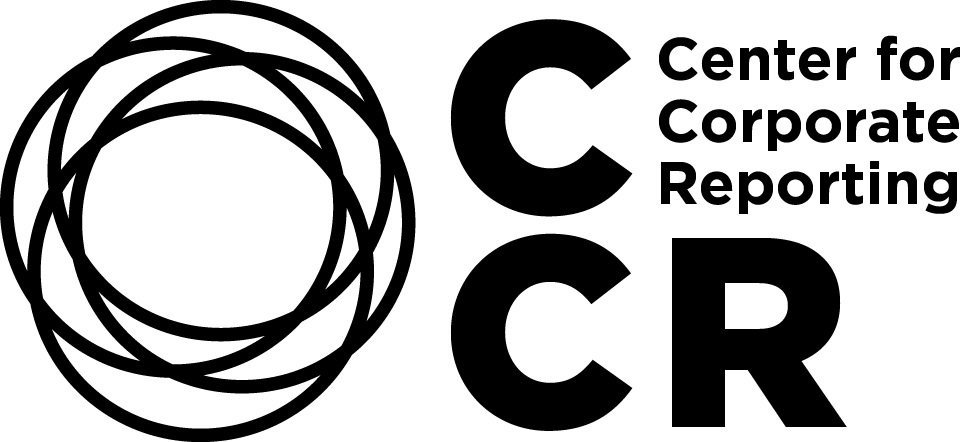After years of tightening regulations, a significant shift is beginning to take shape. Although regulatory pressures are easing, significant challenges still remain. Companies must now identify what truly matters, set clear priorities and direct their resources effectively to address the challenges regarding digitalization and sustainable transformation initiatives. In this new landscape, relevance must be earned. Strategic clarity isn’t optional – it’s essential for resilience and long-term success, as it fosters responsible decision-making and maximizes positive impact.
Focus on Business Relevance
Lesen Sie hier Editorial und Lead der 27. Ausgabe der Reporting Times.
Alex Glanzmann im Gespräch mit Walter Thomas Lutz und Reto Schneider
Seit Frühling 2025 leitet Alex Glanzmann interimistisch die Schweizerische Post. Im Interview mit The Reporting Times spricht er unter anderem darüber, wie die Post einen starken Service public weiterentwickeln will und welche Herausforderungen er für seine Kernaufgabe als CFO erwartet.
By Center for Corporate Reporting
We are dedicated to providing our members with relevant and up-to-date information on internal and external reporting, as well as digitalization, and firmly believe in the power of peer-to-peer learning and exchange to foster genuine learning. Our ongoing exchange series provides a strategic advantage by supporting growth and resilience amid evolving uncertainties, such as regulatory changes or technological innovation.
Von Simeon Eichelmann
Viele sehen Naturverlust als Teil der gesellschaftlichen Verantwortung von Unternehmen. Zunehmend wird es jedoch zu einem finanziellen Risiko. Wenn Wälder verschwinden oder Flüsse verschmutzt werden, kostet das viel Geld. Besonders betroffen sind Sektoren wie Landwirtschaft, Energie, Transport, Bau und Tourismus. In diesen Bereichen ist klar: Ohne gesunde Natur ist wirtschaftlicher Erfolg in Gefahr. Hier hilft die Taskforce on Naturerelated Financial Disclosures (TNFD). Sie schafft ein Rahmenwerk, um naturbezogene Risiken und Chancen zu bewerten und offenzulegen.
By Kate Meier and Peter Bakker
People drive business growth. The Taskforce on Inequality and Social-related Financial Disclosures (TISFD) was launched to integrate people-related issues into decision making.
By Timothy M. Doyle and Robert G. Eccles
The U.S. Securities and Exchange Commission (SEC) recently issued Staff Legal Bulletin No. 14M (SLB 14M), the latest turn in a decades-long debate over how to balance shareholder input with managerial discretion. Though technical in format, SLB 14M cuts to the heart of a larger transatlantic discussion. What role should corporations play in society, and how should shareholder activism influence that role?
Von Hans-Peter Nehmer
Fake News, Fragmentierung, Polarisierung sind Kennzeichen der «neuen Öffentlichkeit». Der HarbourClub das CCO-Netzwerk in der Schweiz hat mit seinem «CCO Compass 2025» eine Wegleitung für Unternehmen vorgelegt, wie diese ihre Kommunikation in der Zeitenwende gestalten können.
Von Viktor Baumgartner
In einer Welt, die sich im lautstarken Dauerwandel befindet, steigt die Zahl der Worte – und sinkt zugleich deren Wirkung. Das hat einen Grund: Menschen hören nicht mehr wirklich zu. Aufmerksamkeit ist ein seltenes Gut geworden. Sie zu erlangen, bedingt präzise Kommunikation. Wer sie weckt, erzielt Wirkung. Wer sie hält, gestaltet. Wer sie bekommt, führt. Wer sie verspielt, verschwindet im Grundrauschen. Voraussetzung dafür ist, Sprache als Führungsinstrument zu verstehen und wenige, aber hilfreiche Methoden zu verinnerlichen.
By Chris Hogg
In an era marked by disinformation, digital disruption and global instability, how should corporate communicators navigate the “age of unravelling”? This opinion piece offers insights on maintaining clarity, consistency and connection amid volatility, and outlines principles for delivering stability and trust as a counterpoint to the instability and disruption in a post-truth world.
Von Valentin Heisters und Olaf Leu
Die Kommunikation der eigenen Marke wird zunehmend schwieriger zu steuern. Menschen erkennen heute schneller die Haltungen, die hinter Aussagen und Handlungen stehen – sie unterscheiden zwischen Substanz und blossem Marketing. Dennoch bleibt es essenziell, die Kommunikation mit den unterschiedlichen Anspruchsgruppen plan- und steuerbar zu gestalten.
Von David Bach
Kürzlich gestand mir ein CEO eines grossen Unternehmens, wie geradezu einfach das Führen vor fünf Jahren schien: kein Krieg, keine Pandemie, eine stabile internationale Ordnung. Seit 2020 hat sich alles verschoben: Die Coronapandemie riss uns aus unserem gewohnten Trott und liess uns flexibler werden; der Krieg in der Ukraine machte uns die Fragilität einer heilen Welt bewusst und lehrte uns, die richtige Seite zu wählen; und der disruptive Führungsstil an der Spitze der Weltmacht USA zwingt uns nun, uns und unsere Organisation zu überprüfen und neu aufzustellen.
Anna Kremer im Gespräch mit Tobias Naumann
SAP ist ein international operierender deutscher Softwarekonzern und das wertvollste börsennotierte Unternehmen im DAX und in Europa. Die Kunden der SAP erzeugen 84% des weltweiten Handelsvolumens, wobei 98 der 100 grössten Unternehmen der Welt SAP nutzen. Mit mehr als 109.000 Beschäftigen in über 157 Ländern steht das Unternehmen im Zentrum der digitalen Transformation. SAP Deutschland CFO Tobias Naumann sieht in der digitalen Finanztransformation die Chance für Unternehmen, Prozesse zu optimieren, Kosten zu senken und durch innovative Technologien Wettbewerbsvorteile zu erlangen.
By Walter Thomas Lutz
On 18 June 2025, the 16th Geschäftsberichte-Symposium (GBS) brought together the international reporting community at the GDI high above Lake Zurich. With over 300 guests in attendance, the conference center was once again fully booked.
By Julia Wittenburg
For anyone who has followed the ESG movement in finance, and specifically in investment management in the last twenty years, the current headwinds stemming from ESG critics represent a temporary and perhaps even necessary correction in a long-term journey. It brings non-financial risk and opportunity management closer to an integrated approach in mainstream investing. In fact, this temporary re-assessment indicates that, far from being abandoned, the topic has reached a level of maturity that calls for more rigorous definitions, more sector-specific refined practices and a move towards aligning sustainability goals with core business values that primarily focus on financial materiality.
By Steffen Rufenach and Shahar Silbershatz
In a digital world defined by growing complexity and shrinking attention spans, simple stories capture attention. That’s why corporate rankings are increasingly critical to reputation management. As generative AI tools such as ChatGPT replace the traditional internet search, they fundamentally change how people access information. This article outlines why rankings management is now essential to every company’s reputation strategy and presents a four-step approach to boost visibility in AI-generated results.
Von Fabian Dieziger
Hundert Seiten, vier Sprachversionen, monatelange Abstimmungen – und trotzdem ernüchternde Zugriffszahlen. Geschäftsberichte werden produziert wie Prestigeprojekte. Gelesen werden sie, wenn überhaupt, nur im Schnelldurchlauf oder von Maschinen. Zeit für die unbequeme Frage: Für wen schreiben wir das alles eigentlich?
Von Antoinette Hunziker-Ebneter
Geschäftsrelevanz ungeachtet der konjunkturellen und politischen Grosswetterlage aufrechterhalten zu können, ist kein Zufall. Diese Fähigkeit ist vielmehr Ergebnis und Ausdruck einer fest verankerten Wertekultur, des Vermittelns des unternehmerischen Selbstverständnisses jenseits des Profits und einer guten Corporate Governance.
By Kai Zinn
In recent years, the landscape of sustainability reporting has undergone significant transformation, driven by increasing regulatory requirements and stakeholder expectations. With the introduction of the EU Corporate Sustainability Reporting Directive (CSRD), organizations are now faced with the need to significantly enhance their reporting and data collection processes.
By Elena Maran and Kevin Schawinski
As AI adoption accelerates, organizations face a critical challenge: harnessing AI’s transformative power while managing its unique risks and regulatory complexities. Too often, AI governance is seen as a compliance burden that limits innovation. This misses a crucial insight: properly implemented governance enables organizations to move faster, innovate confidently and build a sustainable competitive advantage.
By Mars Aeschlimann and Samantha Oberholzer
In today’s complex business environment, sustainability has become more than a KPI or marketing initiative – it’s an innovation imperative. As stakeholders demand more than incremental change, companies and teams are challenged to rethink not only what they innovate, but how. What does it look like when sustainability becomes a conscious part of the innovation process? And what does it take to truly align action with ambition in a responsible way?
Von Prof. Dr. Christian Fink und Prof. Dr. Dr. Alexander Moutchnik
Die Taxonomie-Verordnung verfolgt das Ziel, Kapitalströme und Investitionen gezielt in ökologisch nachhaltige Aktivitäten und Projekte umzulenken. Voraussetzung dafür ist ein klar definiertes und einheitliches Verständnis darüber, welche Unternehmensaktivitäten tatsächlich als ökologisch nachhaltig gelten. Dazu stellt die Taxonomie- Verordnung ein kriterienbasiertes System bereit, das eine präzise Klassifizierung ökologisch nachhaltiger Wirtschaftsaktivitäten ermöglichen soll.
By Dr Rupini Deepa Sobottka
As investor demand for environmental, social and governance (ESG) data grows, small and medium-sized enterprises (SMEs) have a unique opportunity to build trust and attract capital through voluntary, meaningful sustainability reporting. Despite existing challenges and the easing of European Union (EU) regulatory sustainability reporting demands, regularly reporting on key areas such as emissions, workforce diversity and governance can help SMEs strengthen their growth prospects and appeal to long-term investors. This article explores how sustainability reporting, if done right, can be a strategic asset, not a burden.
Von Tanja Nagel und Prof. Dr. Ralf Frank
Banken und Investoren schauen genauer hin, denn mit verschärften Anforderungen von Regulatoren und Marktaufsicht wächst der Druck auf Kreditinstitute und Assetmanager, Klimarisiken zu berücksichtigen. Unternehmen müssen sich auf steigende Anforderungen von Kapitalgebern einstellen. Heidelberg Materials zeigt, wie systematisches und transparentes ESG-Reporting zum Wettbewerbsvorteil werden kann.
Christian Pieter Hoffmann
Mit der Rubrik «Auf ein Wort mit …» will «The Reporting Times» regelmässig bekannte Mitglieder der Reporting Community von ihrer ganz persönlichen Seite zeigen.
Inserenten
Herzlichen Dank unseren Inserenten!
Ein herzliches Dankeschön an unsere Platinpartner Linkgroup, LRQA, MDD – Management Digital Data AG, NeidhartSchön, Supertext Schweiz und up&up consulting ohne deren Unterstützung die Realisation dieser Fachpublikation jeweils nicht möglich wäre.
Ebenfalls bedanken wir uns bei allen Inserenten der aktuellen Ausgabe:
1/1 Seite
1/3 Seite
Welche Angebote möchten Sie intelligent bei Ihren Zielgruppen positionieren? Wir helfen Ihnen mit der Zusammenstellung eines individuellen Positionierungs-Pakets.
Impressum
The Reporting Times ist die Zeitung des Center for Corporate Reporting (CCR), Zürich.
Herausgeber: Reto Schneider
Redaktion & Projektmanagement: Georgia Jucker, Anna Kremer, Walter Thomas Lutz, Thomas Scheiwiller, Rea Wagner, Carol Winiger, Barbara Zäch
Art Direction und Design: up&up Consulting AG
Illustrationen: Muti (Titelseite), Anne Lück (Porträts)
Produktion: Neidhart + Schön Group AG
Copyright: Center for Corporate Reporting c/o Geschäftsberichte-Symposium AG, Dorfstrasse 29, 8037 Zürich








































